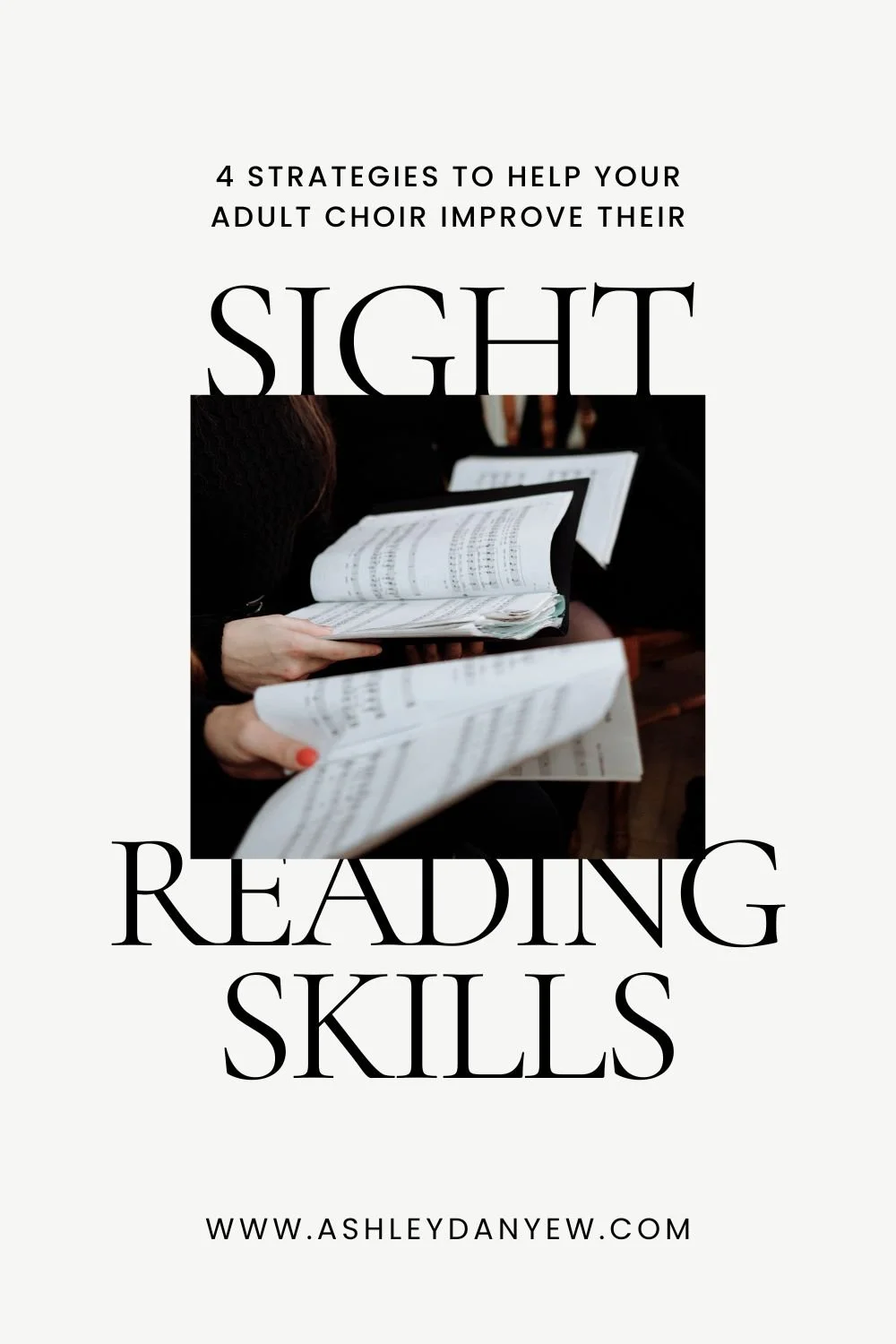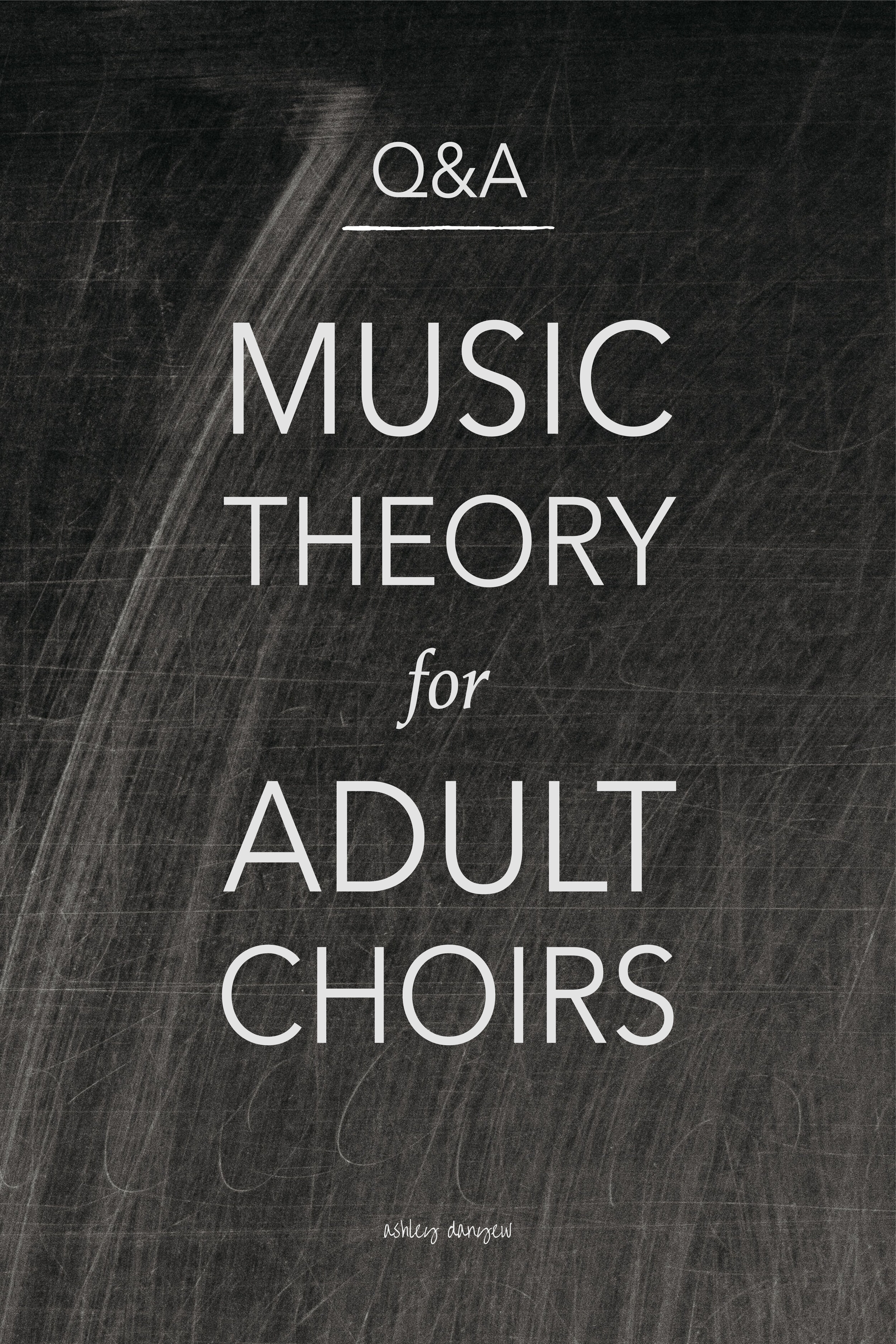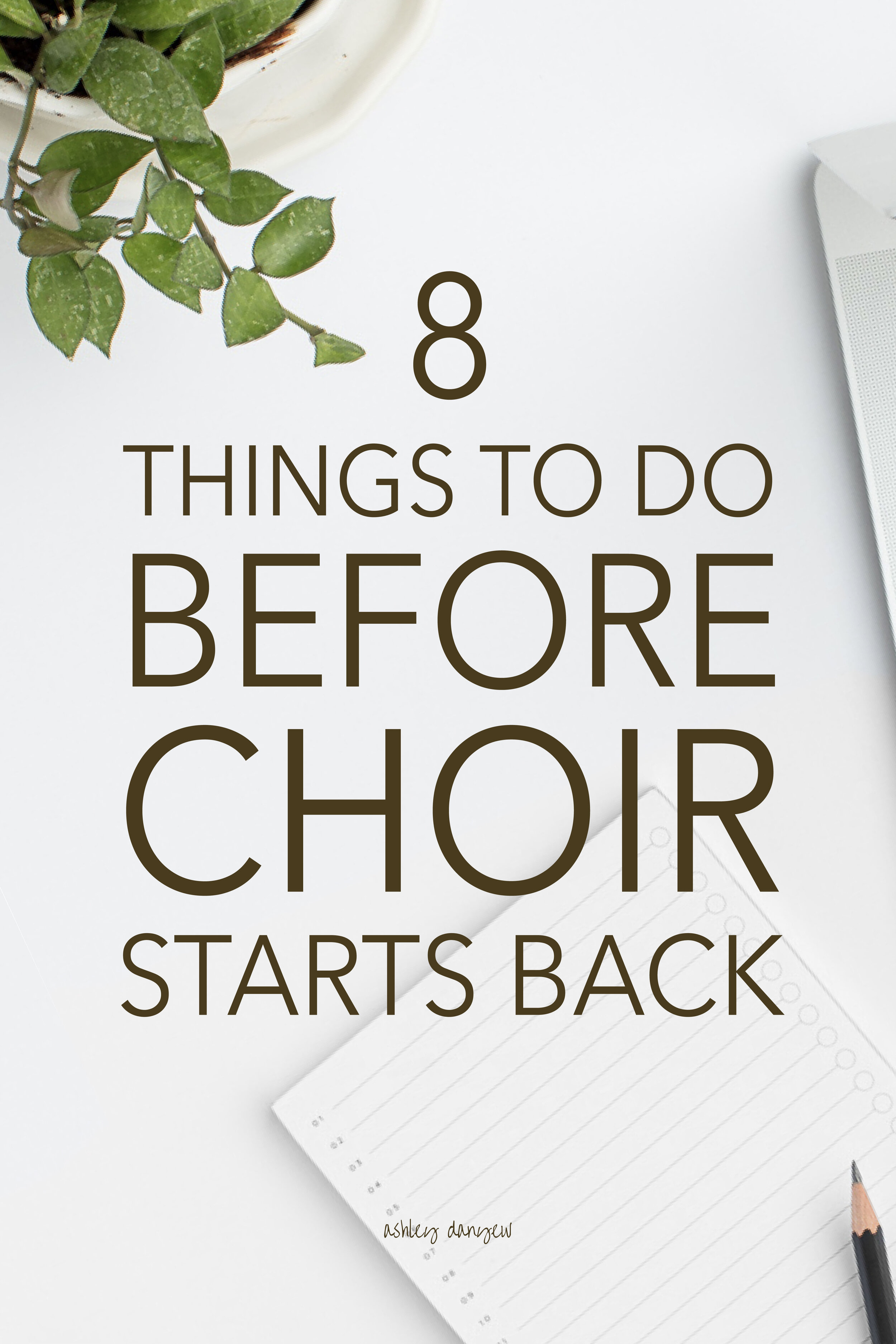You know what it feels like:
Uninspired.
Laborious.
Boring.
It’s easy to slip into a rut in rehearsals from time to time, but I think we can all agree: these are not things anyone wants to feel or experience.
You don’t want to feel like you’re just going through the motions each week; you want to feel excited and energized to sing or play and learn and make music together.
You don’t want to keep doing things the same way (especially if it’s no longer work). You want to expand your creativity, feel more mentally engaged and connected, and continue developing your musicianship skills in the process.
Right?
If you feel like your rehearsals have gotten a bit monotonous lately, this post is for you. Here are a few reasons why this may be happening, plus some helpful strategies for getting out of that rut and back to making music with creativity and enthusiasm.
Here’s Why Your Rehearsals May Feel Repetitive Lately (and What to Do Instead)
No. 1 - You do the same warm-ups every week.
It’s easy to fall into the habit of doing the same warm-ups each week. You get into a routine, the patterns are familiar and don’t require much explanation, and they work. (Or at least they used to.)
Note: By repeating the same technical exercises (often in the same order) week after week, your students or choir members may start to tune out and lose focus. Their minds may wander because these patterns are so familiar, they don’t require much active thought. As such, you may see (and hear) lack of engagement and focus in their technique, their faces, and their sound:
shallow breaths
poor posture
lack of technique
spread vowels
vocal sliding between pitches
mediocre sound
Here’s what to do instead:
Mix up your warm-ups each week. Put them in a new order to keep everyone engaged and paying attention and introduce a new pattern every month, or so, to focus on a specific aspect of technique, ensemble skills, or choral singing.
For a few fresh ideas and more information on what kinds of warm-ups to include in your rehearsals, see this free resource: 50 Choral Warm-Ups.
No. 2 - You're rehearsing every piece the same way every week.
When it comes to teaching a new piece or anthem, there are a few different approaches:
Sing through the full piece before stopping to talk about anything
Sing through one section at a time, stop to give feedback, then sing it again, or
Break the piece into sections and rehearse each part alone (if needed) and in combinations.
The trick is balancing these approaches throughout your rehearsal with the various pieces you’re working on. Your rehearsals may start to feel monotonous and repetitive if you take the same approach to every piece or anthem you sing through.
“Let me hear just the basses. Now, let’s do basses and tenors. How about basses and altos. Okay, now basses, tenors, and altos...”
Here’s what to do instead:
Mix up your rehearsal strategy for each piece based on what it needs and where it is in the learning sequence (brand new, in progress, polishing phase).
For instance:
For pieces you’re reading for the first time, I would recommend using the first or second approach (even if it’s something the group has done before).
For pieces that are in the middle of the learning sequence—the “in progress” phase—use the third approach. This is when you can zoom in and work on details, review parts, sing things under tempo, speak the text in rhythm, etc.
For pieces in the final polishing stage, try performing the piece straight through before stopping to give comments or ask questions. This will help your students or choir members learn that all-important skill for music performance: Keep going no matter what.
For more ideas on how to rehearse an anthem, see My Step-By-Step Process for Rehearsing a New Anthem.
No. 3 - You’re giving them the same reminders every week.
You know those things you feel like you say every week?
Don’t sing the “r"
Round that vowel
Take a deep low breath—don’t gasp!
Pay attention to the dynamics...
Sit up tall
If you’re getting tired of hearing yourself repeat these things over and over, it’s likely that your students or choir members are also growing weary of them. Now, that’s not to say that they aren't important—these are all valid reminders!—the challenge is when they become so repetitive and expected that people start to tune out and stop listening.
Here’s what to do instead:
Think about new ways to engage your students or ensemble and give them a little more ownership in the learning process. Ask lots of questions and invite them into the reflection process:
How did you do with dynamics that time?
Did you remember to take a deep, low breath before that entrance?
How did that go?
What can you do to improve your sound the next time through?
This small shift will help you offer those important reminders, but instead of giving them all the information, you’re helping to promote learning and musical development.
No. 4 - You’re probably spending too much time on one thing.
Maybe it’s a piece you’re rehearsing over and over or a musical concept you’re trying to explain. Maybe it’s a series of difficult intervals or rhythm patterns you’re reviewing. Regardless, too much time on one thing can lead to dwindling attention spans, lack of energy, and if we’re being honest, boredom.
Even a small thing like sitting for an extended period of time can cause people to lose focus.
Here’s what to do instead:
Mix up sitting and standing throughout your rehearsal to keep people physically and mentally engaged in what you’re doing. Keep a quick pace, and be wary of spending more than 5-7 minutes, or so on one section or concept.
No. 5 - Your students or choir members aren’t experiencing flow.
Educational researcher and psychologist Mihalyi Csikszentmihalyi said that flow is a balance between perceived challenge and perceived skill. This means that to experience flow (or “optimal experience,” as he called it), we must sense a certain amount of challenge in a given task, but also feel confident that we have the skills we need to meet it.
It’s a fine line, though.
If the task is too easy, we won’t feel the need to go all in, to be fully and actively engaged. But, if it’s too hard, we’re likely to get frustrated, feel like we can’t do it, and give up.
There are a few things that might be hindering flow experience in your rehearsals:
Singing or playing music that doesn’t offer enough of a challenge, either because it’s too easy or because it’s already very familiar and doesn’t really need rehearsing
Stopping and starting after every few phrases, not going long enough to really get into the piece and feel the momentum
Working on music that’s too challenging for your group and not taking the time to help them develop the skills they need to feel confident in their abilities
Here’s what to do instead:
Strive to program music that offers just enough of a challenge to keep your rehearsals interesting and your singers or players engaged, but be sure to balance that challenge by helping them develop their skillset and musical independence.
Also, try to keep everyone singing or playing as much as possible (the fewer interruptions, the better!). Keep your spoken directions short and clear and avoid working with just one part or section at a time. If you need to isolate something for a few minutes, encourage everyone else to hum their part or sing with the section you’re rehearsing, for support (and a good sight-reading opportunity!).
I’d love to hear from you:
If you’ve been feeling like your rehearsals are a bit monotonous lately, I hope these simple tips and strategies are helpful to you. Which one resonates with you the most? What small change makes the biggest difference for your choir?
If you need more support, here’s a free resource that might help:
Free Resource
Your weekly rehearsal-planning made easy.
Plan your weekly (90-minute) choir rehearsal in no time with this helpful printable! Print, fill in your rehearsal items (warm-ups, music for Sunday, anthems, etc.) and you're good to go!






































